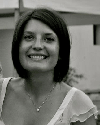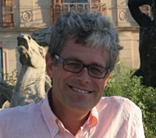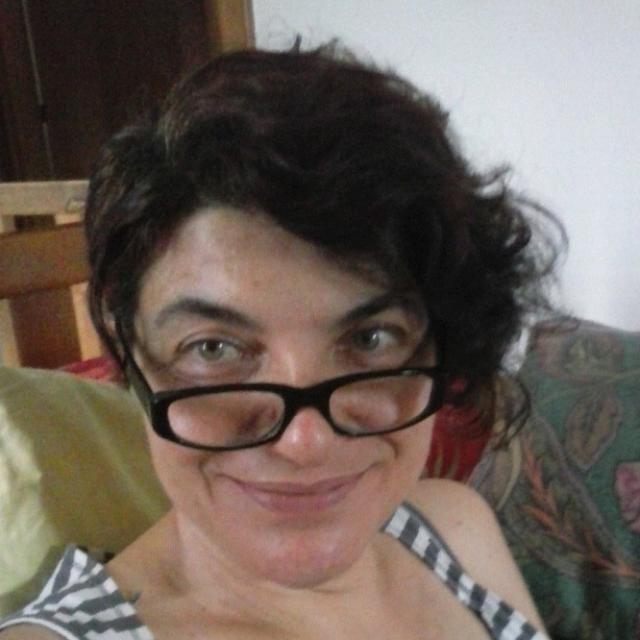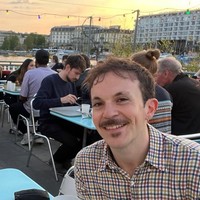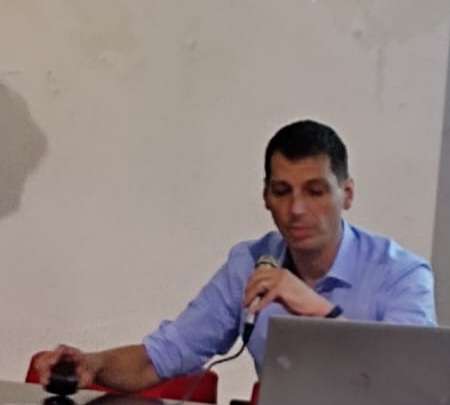Studying at the University of Verona
Here you can find information on the organisational aspects of the Programme, lecture timetables, learning activities and useful contact details for your time at the University, from enrolment to graduation.
Academic calendar
The academic calendar shows the deadlines and scheduled events that are relevant to students, teaching and technical-administrative staff of the University. Public holidays and University closures are also indicated. The academic year normally begins on 1 October each year and ends on 30 September of the following year.
Course calendar
The Academic Calendar sets out the degree programme lecture and exam timetables, as well as the relevant university closure dates..
| Period | From | To |
|---|---|---|
| Sem. 1A | Sep 24, 2018 | Nov 10, 2018 |
| Sem. 1B | Nov 19, 2018 | Jan 12, 2019 |
| Sem. 2A | Feb 18, 2019 | Mar 30, 2019 |
| Sem. 2B | Apr 8, 2019 | Jun 1, 2019 |
| Session | From | To |
|---|---|---|
| Sessione d'esame invernale | Jan 14, 2019 | Feb 16, 2019 |
| Sessione d'esame estiva (gli esami sono sospesi durante la sessione di laurea) | Jun 3, 2019 | Jul 27, 2019 |
| Sessione d'esame autunnale | Aug 26, 2019 | Sep 21, 2019 |
| Session | From | To |
|---|---|---|
| Sessione di laurea estiva | Jul 8, 2019 | Jul 13, 2019 |
| Sessione di laurea autunnale | Nov 4, 2019 | Nov 9, 2019 |
| Sessione di laurea invernale | Mar 30, 2020 | Apr 4, 2020 |
| Period | From | To |
|---|---|---|
| Festa di Ognissanti | Nov 1, 2018 | Nov 1, 2018 |
| Sospensione dell'attività didattica | Nov 2, 2018 | Nov 3, 2018 |
| Festa dell’Immacolata | Dec 8, 2018 | Dec 8, 2018 |
| Vacanze di Natale | Dec 24, 2018 | Jan 5, 2019 |
| Vacanze di Pasqua | Apr 19, 2019 | Apr 23, 2019 |
| Sospensione attività didattica | Apr 24, 2019 | Apr 27, 2019 |
| Festa della liberazione | Apr 25, 2019 | Apr 25, 2019 |
| Festa del lavoro | May 1, 2019 | May 1, 2019 |
| Sospensione dell' attività didattica | May 20, 2019 | May 20, 2019 |
| Festa del Santo Patrono | May 21, 2019 | May 21, 2019 |
| Festa della Repubblica | Jun 2, 2019 | Jun 2, 2019 |
| Vacanze Estive | Aug 12, 2019 | Aug 17, 2019 |
Exam calendar
Exam dates and rounds are managed by the relevant Culture and Civilisation Teaching and Student Services Unit.
To view all the exam sessions available, please use the Exam dashboard on ESSE3.
If you forgot your login details or have problems logging in, please contact the relevant IT HelpDesk, or check the login details recovery web page.
Should you have any doubts or questions, please check the Enrollment FAQs
Academic staff
 bernard.aikema@univr.it (per tutti), aikemaforstudents@gmail.com (per studenti)
bernard.aikema@univr.it (per tutti), aikemaforstudents@gmail.com (per studenti)
 +39 045802 8197
+39 045802 8197

Bassetti Massimiliano
 massimiliano.bassetti@univr.it
massimiliano.bassetti@univr.it
 045802 8376
045802 8376
 silvana.bianchi@univr.it
silvana.bianchi@univr.it
 rossana.cotroneo@univr.it
rossana.cotroneo@univr.it
 stefania.cretella@univr.it
stefania.cretella@univr.it
 marco.dallavalle@univr.it
marco.dallavalle@univr.it
 vincenzo.giannotti@univr.it
vincenzo.giannotti@univr.it
 piergiovanna.grossi@univr.it
piergiovanna.grossi@univr.it
 elisa.lerco@univr.it
elisa.lerco@univr.it
 francesco.lupi@univr.it
francesco.lupi@univr.it

Mastrocinque Attilio
 attilio.mastrocinque@univr.it
attilio.mastrocinque@univr.it
 +39 045802 8386
+39 045802 8386
 marco.menato@univr.it
marco.menato@univr.it
 marta.minazzato@univr.it
marta.minazzato@univr.it
 andrea.piasentini@univr.it
andrea.piasentini@univr.it
 lucasimone.rizzo@univr.it / lucasimone.rizzo@unipd.it
lucasimone.rizzo@univr.it / lucasimone.rizzo@unipd.it
 alberto.scandola@univr.it
alberto.scandola@univr.it
 carlo.vannini@accademiabelleartiverona.it
carlo.vannini@accademiabelleartiverona.it
 paola.venturelli@univr.it
paola.venturelli@univr.it
 sabrina.zago@univr.it
sabrina.zago@univr.it
Study Plan
The Study Plan includes all modules, teaching and learning activities that each student will need to undertake during their time at the University.
Please select your Study Plan based on your enrollment year.
1° Year
| Modules | Credits | TAF | SSD |
|---|
2° Year activated in the A.Y. 2019/2020
| Modules | Credits | TAF | SSD |
|---|
3° Year activated in the A.Y. 2020/2021
| Modules | Credits | TAF | SSD |
|---|
| Modules | Credits | TAF | SSD |
|---|
| Modules | Credits | TAF | SSD |
|---|
| Modules | Credits | TAF | SSD |
|---|
| Modules | Credits | TAF | SSD |
|---|
Legend | Type of training activity (TTA)
TAF (Type of Educational Activity) All courses and activities are classified into different types of educational activities, indicated by a letter.
Topography of Ancient Italy (i) (2020/2021)
Teaching code
4S01193
Teacher
Coordinator
Credits
6
Language
Italian
Scientific Disciplinary Sector (SSD)
L-ANT/09 - ANCIENT TOPOGRAPHY
Period
CuCi IIA dal Feb 15, 2021 al Apr 1, 2021.
Learning outcomes
The course addresses the subject of the relationship that arose between man and the environement in ancient times, with particular reference to the Roman era.
The expected learning outcomes are:
KNOWLEDGE
1. Knowledge of the sources, tools and methodologies used in the reconstruction of the ancient environment with particular focus on road networks, agrarian organisation and urban development.
2. Knowledge of the influence of geographical factors on the origin and development of settlements and the environmental changes caused by man.
SKILLS
1. Correct use of basic archaeological terminology, particularly that related to the ancient landscape.
2. Application of an interdisciplinary methodological approach to the reading and interpretation of the ancient world.
3. Analysis and understanding of the main sources employed in historical/archaeological study (literary, epigraphic, material).
Program
The first part of the course will address general topics:
1. the meaning and value of historical topography;
2. the tools and methods for the study and reconstruction of the ancient environment;
3. roman roads: sources and research methodology;
4. centuriation and the rural population;
5. urban structures.
The second part of the course will address these same themes in the context of Roman Venetia, employing, inter alia, concrete applications from research projects in which Patrizia Basso is involved.
There are no prerequisites but it would be preferable that students have a basic knowledge of Roman history and Classical archaeology. .
Course texts
For the first part of the course, lecture notes and illustrative material will be provided on the e-learning platform (PowerPoint of the lectures); those students that do not attend lectures have to study the manual G. BONORA, P.L. DALL’AGLIO, S. PATITUCCI, G. UGGERI, La topografia antica, Cleub, Bologna 2000
For the second part of the course, the volume J. BONETTO, Veneto, Archeologia delle Regioni d’Italia, Libreria dello Stato - Istituito Poligrafico e Zecca dello Stato, Roma 2009 (2 chapters for those that attend lectures and 4 for those that do not – in each case, to be chosen on the basis of personal interests).
Other texts may also be selected with the agreement of the course lecturer, obtained either via email or during office hours.
| Author | Title | Publishing house | Year | ISBN | Notes |
|---|---|---|---|---|---|
| G. BONORA, P.L. DALL’AGLIO, S. PATITUCCI, G. UGGERI | La topografia antica | Cleub | 2000 | ||
| J. Bonetto | Veneto, Archeologia delle Regioni d’Italia | Libreria dello Stato - Istituito Poligrafico e Zecca dello Stato | 2009 |
Examination Methods
The objective of the exam is to verify the achievement of the previously specified expected learning outcomes.
Oral exam. The evaluation will take into account knowledge, skills demonstrated and capacity to express oneself orally using appropriate terminology.
Type D and Type F activities
| years | Modules | TAF | Teacher |
|---|---|---|---|
| 1° 2° 3° | "caro mostro. duecento anni di frankenstein" | F |
Nicola Pasqualicchio
(Coordinator)
|
| 1° 2° 3° | Lectures "Musiche/Culture/Civiltà" | F |
Vincenzo Borghetti
(Coordinator)
|
| 1° 2° 3° | Castelvecchio Lectures (City Art Museums) | F |
Alessandra Zamperini
(Coordinator)
|
| 1° 2° 3° | C.T.G. Lectures | F |
Alessandra Zamperini
(Coordinator)
|
| 1° 2° 3° | Graphic and photographic documentation of the archaeological artefacts: from traditional drawings to digital sources | F |
Diana Sergeeva Dobreva
(Coordinator)
|
| 1° 2° 3° | Giovedì' culturali dell'ISSR I ciclo | F |
Tiziana Franco
(Coordinator)
|
| 1° 2° 3° | Ceramica romana nell'Adriatico. Produzione, tipologia e distribuzione | F |
Diana Sergeeva Dobreva
(Coordinator)
|
| 1° 2° 3° | Univero’ 2018 | F |
Tiziana Franco
(Coordinator)
|
Career prospects
Module/Programme news
News for students
There you will find information, resources and services useful during your time at the University (Student’s exam record, your study plan on ESSE3, Distance Learning courses, university email account, office forms, administrative procedures, etc.). You can log into MyUnivr with your GIA login details: only in this way will you be able to receive notification of all the notices from your teachers and your secretariat via email and soon also via the Univr app.
Graduation
List of theses and work experience proposals
| theses proposals | Research area |
|---|---|
| Ambiti di tesi | Art & Architecture - Art & Architecture |
| Stage | Research area |
|---|---|
| Lavorare in archivio | Various topics |
















